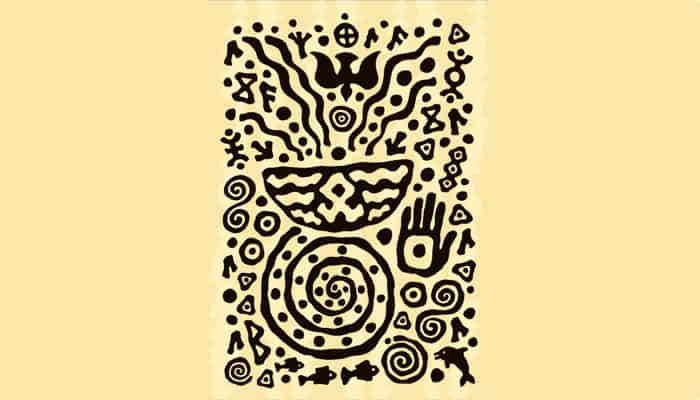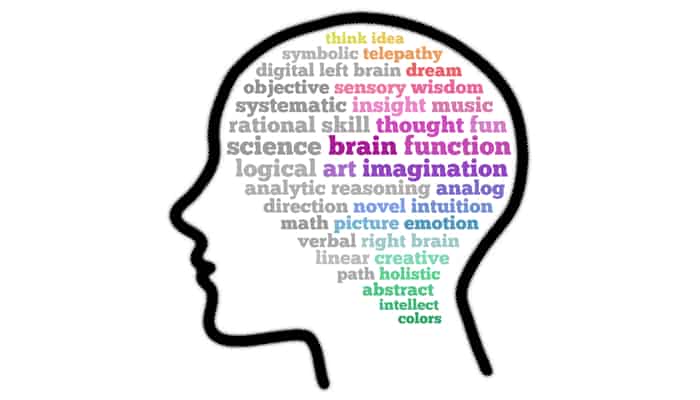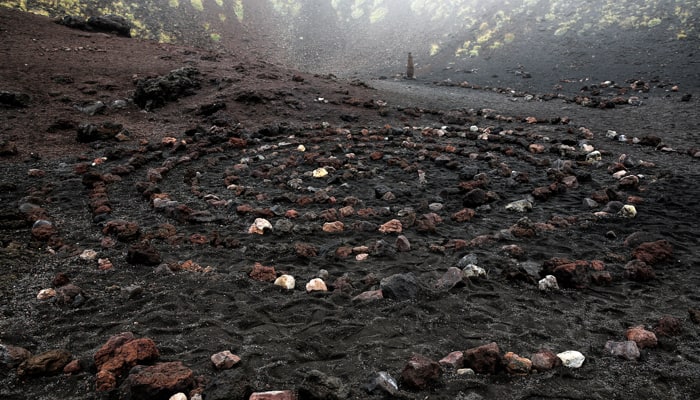Category: Applied Shamanism
Article: Ho’oponopono: Making Right
By Isa Gucciardi, Ph.D.
Ho’oponopono is a Hawaiian word which refers to a process of mediation which has been used to bring peace among family and community members in Hawaii for centuries. Ho’oponopono is a key component of the larger school of psychology and healing called Huna.
Huna is a very ancient psychology, which has roots in mystery schools beyond the Hawaiian Islands. Many of the important elements of these mystery schools were relatively well preserved within the shamanic practices of Hawaii until the arrival of Christian missionaries in the early nineteenth century.
Article: Shamanic Counseling Case Study – The Healing Drum
By Isa Gucciardi, Ph.D.
In almost all shamanic cultures, both past and present, we see the drum being used as an instrument of healing. Shamans use the drum to address many issues and physical ailments including depression, phobias, addiction, and chronic health problems. Additionally, the shamanic techniques of soul retrieval, depossession, and extraction can all be performed with the drum.
Podcast: Episode 12: The Role of Healer and Universal Flow
In the training programs offered by Sacred Stream, healers are shown how to get their own personal energy system configured so that it can participate as fully as possible in the larger universal flow of experience which is all around us and in which human beings’ experience exists. In these two excerpts from talks given in Rhode Island in July 2010, Isa Gucciardi, Ph.D. discusses the role of healer and the nature of universal flow, how healers can work with it, and what people need to do in order to align with it.
Podcast: Episode 09: Shamanism and Dogma
Shamanism is an age-old science/art that has existed in the vast majority of the cultures that have ever been on the planet. What we now call indigenous cultures have had the shaman as the center of the spiritual life, the social life in terms of problem solving, and the healing life of the community. Different shamans have different areas of expertise. The shamanism that Depth Hypnosis draws from is called “core shamanism,” a term coined by Michael Harner. Core Shamanism refers to principles of shamanism that are found in many or most cultures. In this excerpt from a 2006 Applied Shamanism workshop, Isa Gucciardi, Ph.D. discusses shamanism and dogmas that are found within some shamanic practices.
Podcast: Episode 08: Shamanism in Contemporary Culture
Shamanism in contemporary culture in North America reflects the context: people’s personal evolutionary needs are different than they might be in an indigenous culture. Most indigenous cultures have well-defined role structures, where people are born into a particular lineage and perform particular duties as part of that lineage. Some cultures have had more tolerance for people deviating from their assigned role than others. Today in the modern Western world, historical patterns and social roles are not necessarily respected. This situation is a two edged sword, but it does allow people to evolve in terms of their own internal callings, rather than necessarily having to evolve according to the roles prescribed by the external culture.
Article: Depth Hypnosis, Soul Retrieval, and Addiction
By Isa Gucciardi, Ph.D.
There are many different understandings about the nature of addiction. In working with addiction through my practice of Depth Hypnosis, I have found that it is helpful to apply the diagnostic and restorative methods provided by shamanism to help resolve addictive issues permanently.
Article: Energy Medicine
By Isa Gucciardi, Ph.D.
We tend to think of ourselves as material beings, interacting with material objects – but if you think about it, much of your reality is strongly influenced by the unseen. Are your thoughts material? Are your emotions material? How much of your reality is influenced by your thoughts and emotions? Is there anything that you do that you have not thought about before doing? Is there anything that you do that you don’t have feelings about?
Article: Shamanic Counseling Case Study: Soul Retrieval
By Isa Gucciardi, Ph.D.
From the shamanic perspective, one of the primary causes of imbalance is soul loss. Soul loss can be caused by any type of trauma: emotional, physical, spiritual, or psychological. And trauma can be the result of many things including verbal or physical attack, surgery, abuse, or a sudden loss. From a shamanic perspective, when trauma occurs, a soul part can become “frozen outside of time.” When this happens, the soul part does not evolve with the person as they continue their life. If this situation is not addressed, many problems can occur, including depression, addiction, and even chronic illness.
Article: Notes Towards a New Understanding of Education: Bringing Intuitive and Empirical Learning Into Balance
By Isa Gucciardi, Ph.D. and Laura Chandler
As we approach the time of year where we traditionally return to formal education, it is important to consider the role that education plays in our lives. Education is defined in many different ways, and might generally be understood as a process where information regarding the nature of reality is transmitted from one person to another in a group setting.
This idea of reality could be described as a kind of consensus, based on empirical information that has been accumulated and synthesized into a modality that can be passed on through educational systems. The skillset that we develop in order to participate in this process of education requires that each individual must, to some degree, attune to the demands of the group, the desires of the instructor, and work towards the development of a rational intellect that can reproduce what is taught in a socially acceptable way. These are important skills, and necessary for members of any society.
There is, however, another important aspect of learning that is almost completely overlooked in traditional educational environments.
Article: War and Soul Loss
By Isa Gucciardi, Ph.D.
It has been unfashionable for veterans returning home from war to talk about the effect their experiences during the war has had on them. I have had countless children of veterans tell me that their fathers had never once spoken of their experience in World War II, Korea, or Vietnam. I have known veterans who stop speaking when war is brought up. Most men returning from war have turned to silence to deal with the trauma of their experience on the battlefield. This is, after all, the “manly” thing to do. The effect that this silence has on their personal life, their family life, and the society in which they live is often minimized or completely disregarded.
Article: What is Depth Hypnosis?
By Isa Gucciardi, Ph.D.
Depth Hypnosis is a synthesis of Transpersonal Psychology, Shamanism, Hypnotherapy, and Buddhism. The following description is especially helpful for those who might be considering entering the advanced training course in Depth Hypnosis.
The philosophy underlying transpersonal psychology – that true healing can only take place when one recognizes one’s place within a much larger context of the shared experience of the soul – is the underpinning of my practice. The techniques of shamanism and hypnotherapy provide the catalysts for healing within that context. The differences between the disciplines of shamanism and hypnotherapy are much fewer than the similarities.
Article: Working with the Shamanic Journey
By Isa Gucciardi, Ph.D.
Shamanism is the core spiritual and healing practice of most indigenous cultures. The Shaman serves as the medical, psychological, and spiritual counselor of these cultures. One of the primary responsibilities of the Shaman is to interface between the world of the seen and the unseen. As part of the interface between these two worlds, the shaman uses the shamanic journey. The shamanic journey is a term that is used to describe the primary vehicle that Shamans use to perceive phenomena beyond the conscious mind. It is a method of perceiving the psyche and world of spirit, as well as a means of gaining deeper insight into the world around us.
Article: The Ancient Roots of Huna
By Isa Gucciardi, Ph.D. and Laura Chandler
The Huna tradition of Hawaii is a shamanic tradition with roots far deeper than the Pacific Islands. It is a window into a much more ancient wisdom – one that flows beneath all shamanic and spiritual traditions. Like flowers blooming on the same vine, spiritual traditions draw from a similar source. Just as each flower is unique, each culture is unique in the way that it expresses and preserves specific aspects of this underlying body of knowledge. The Huna tradition offers a rare perspective of this source and a glimpse into the ancient oral traditions that have existed from the beginning of humankind.
Article: An Interview with Isa Gucciardi
Q. What brought you to this line of work?
A. The beauty of nature has always been an inspiration to me. From the time I was a very young child, I had trouble reconciling the fact that most humans seem to have difficulty appreciating or understanding the sanity and organization of nature that seems so fundamental to my observations. Through all of the subjects I teach – from Integrated Energy Medicine, Depth Hypnosis, Applied Shamanism to Buddhist Psychology – I am always endeavoring to help people move into a place where they can begin to appreciate the beauty of the world which supports us. I think it is the desire to open people to this beauty and to align myself more fully with it that brought me here.
Article: Hypnosis: The Secular Sacrament
By Isa Gucciardi, Ph.D.
I often think of hypnosis as a secular sacrament. At first glance, “secular sacrament” appears to be an oxymoron. How can something sacred, and therefore traditionally a part of the religious community within a society, be the same thing as something secular, and therefore a part of the political and socioeconomic community of a society? This chapter will show how hypnosis functions as a secular sacrament, yet remains outside of the trappings of the larger cultural and social realities.















